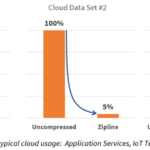In a challenge to Twitch and YouTube, Facebook adds ‘Gaming’ to its main navigation
Facebook’s gaming efforts and challenge to Twitch are taking another big leap today, as the social network begins the initial rollout of a dedicated Facebook Gaming tab in the main navigation of Facebook’s app. The goal with the new addition is to help people more easily find games, streamers and gaming groups they follow, as well as discover new content, based on their interests.
After clicking the new Gaming tab, there will be a feed of content that points to instant games you can play with friends; videos to watch from top streamers, esports organizations and game publishers; and updates from your various gaming groups, the company says.
The new Facebook Gaming tab builds on the gaming video destination the site launched last year as Fb.gg. That hub had offered a collection of all the video games streaming on Facebook, and a way for gamers and fans to interact. As a top-level navigation item, Facebook’s new Gaming tab will now further extend the gaming hub’s reach.
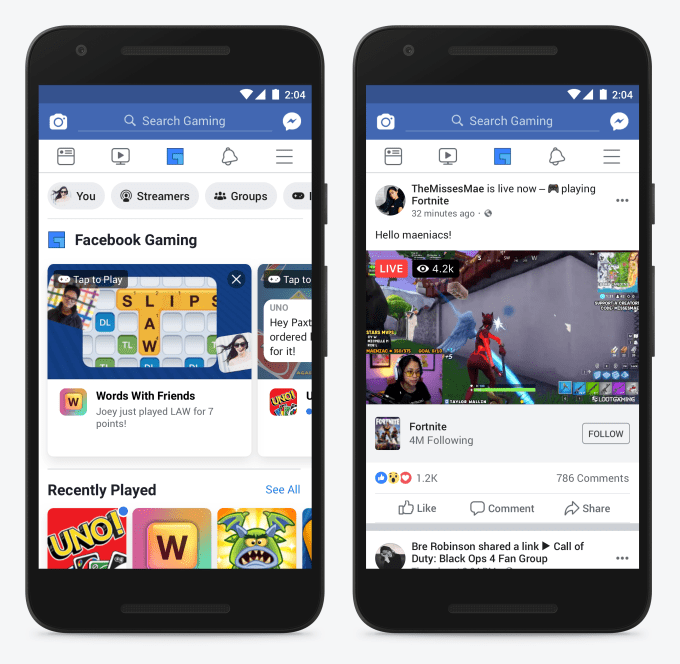
While Twitch and YouTube are today dominating the gaming space, Facebook’s advantage — beyond its scale — is its promise of a reduced cut of transactions. On Fb.gg, gamers were able to attract new fans with the aid of Facebook’s personalized recommendations based on users’ activity, and then monetize those viewers through a virtual tipping mechanism.
Facebook’s cut of those tips ranges from 5 to 30 percent, with the cut getting smaller when users buy larger packs of the virtual currency. Meanwhile, Facebook’s fan subscriptions payments for streamers also see it taking a cut of up to 30 percent, the same as YouTube but smaller than Twitch’s roughly 50 percent.
That could potentially attract streamers who want to maximize their earnings and believe they can port their audience over to a new destination. Of course, some streamers may not trust Facebook to maintain those same percentages over time, nor believe it will ever offer the sorts of features and innovations that a more focused gaming destination like Twitch can.
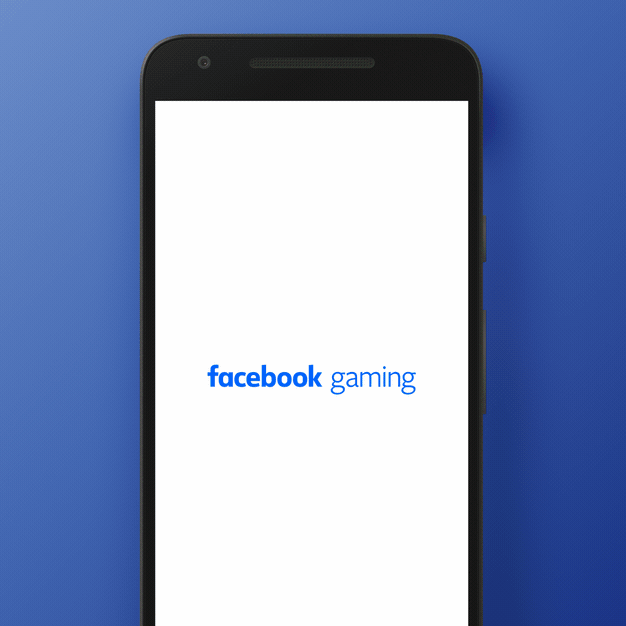
Facebook also last year experimented with making its gaming hub mobile with the launch of Fb.gg as a standalone mobile app.
The app, like the web-based gaming hub, offered a way for gamers and fans to discover content, join communities and even play instant games like Everwing, Words with Friends, Basketball FRVR and others.
However, the strategy of keeping Facebook’s Gaming efforts more separated from Facebook’s main site may not have paid off — the Fb.gg Android app, for example, only has some 100,000+ installs according to Google Play.
Instead, much like YouTube recently decided, Facebook will now leverage the power of its platform to boost interest in its gaming content.
YouTube in September said it was giving its Gaming hub a new home right on the YouTube homepage, and would shut down its standalone Gaming app. (The latter doesn’t seem to have occurred, however). As YouTube noted, gaming was a popular category, but the majority of viewers weren’t looking for a separate app or experience — they were just visiting YouTube directly.
Similarly, Facebook today says that more than 700 million people play games, watch gaming videos or engage in gaming groups on Facebook. That’s a far larger number than those who downloaded the Fb.gg app, and surely a much larger number than those who have been visiting the Fb.gg destination directly.
That said, Facebook is continuing its tests on mobile with a standalone (rebranded) Facebook Gaming app on Android, which will have more features that the Gaming tab.
Facebook says it will roll out the Gaming tab to a subset of the more than 700 million Facebook game fans, and will expand it over time to more gaming enthusiasts across the network. If you don’t see the new tab in your main navigation bar, you can still find it by going to the Bookmarks menu on Facebook.
Powered by WPeMatico
Facebook loses CPO Chris Cox and WhatsApp VP Chris Daniels
13-year Facebook veteran, Chief Product Officer, and the spirit animal of the social network Chris Cox is departing the company after two years of seeking to do something new. Cox’s exit is part of a big executive reshuffle as Facebook embarks on prioritizing privacy through messaging, groups, Stories, and backend unification of its chat features.
CEO Mark Zuckerberg explained the departure of his long-time friend, saying “For a few years, Chris has been discussing with me his desire to do something else . . . But after 2016, we both realized we had too much important work to do to improve our products for society, and he stayed to help us work through these issues and help us chart a course for our family of apps going forward. At this point, we have made real progress . . . As we embark on this next major chapter, Chris has decided now is the time to step back from leading these teams.”

VP of WhatsApp Chis Daniels leaves Facebook
Cox bowing out after so long is understandable, but more surprising is today’s departure of Chris Daniels, an 8-year employee who was moved from being head of Internet.org to VP of WhatsApp just last May in a major re-org. Daniels always felt like a strange choice to oversee international chat leader WhatsApp and its struggles with misinformation in India given he’d led Internet.org when its zero-rated Free Basics app was banned in India for violating net neutrality.
The changes solidify that Facebook is entering a new era as it chases the trend of feed sharing giving way to private communication. Cox and Daniels may feel they’ve done their part advancing Facebook’s product, and that the company needs renewed energy as it shifts from a relentless growth focus to keeping its users loyal while learning to monetize a new from of social networking.
Here’s the breakdown of the executive changes:
- Chris Cox will depart Facebook, but hasn’t revealed plans for what’s next. He will not be immediately replaced
- Chris Daniels will leave WhatsApp, and Facebook declined to provide any details on why or the circumstances
- Will Cathcart will go from running the main Facebook app to VP of WhatsApp
- Fidji Simo who was the VP of Product for Facebook video, news, and advertising will take over Cathcart’s role running Facebook’s main app
- Javier Olivan who was Facebook’s VP of growth will lead the task of identifying how to integrate Facebook’s products, including the plan to unify the backend of Facebook Messenger, WhatsApp, and Instagram direct to expand encryption and allow cross-app messaging that some see a shield against Facebook being broken up.
- Instagram VP Adam Mosseri, Messenger’s VP Stan Chudnovsky, Simo, and Cathcart will now report directly to Zuckerberg, while Chief Marketing Officer Antonio Lucio reports to COO Sheryl Sandberg
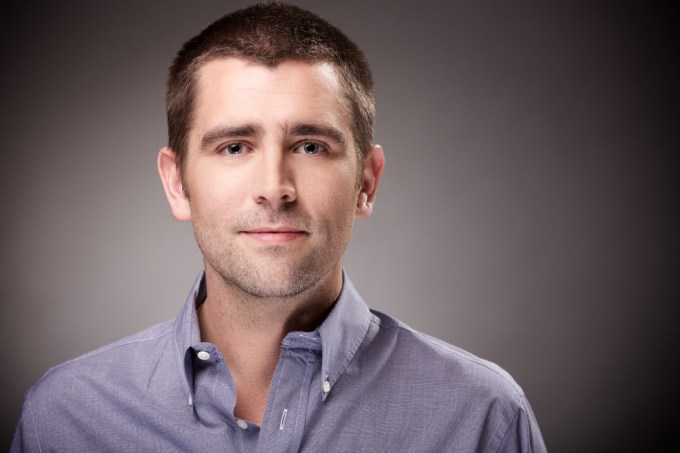
Cox was one of Facebook’s first 15 engineers, joining in 2005 after Zuckerberg convinced him to drop out of a Stanford grad program. He became Facebook’s Director of Human Resources and then in 2008, its VP of product. He was promoted to CPO in 2014 and aided in Facebook’s clean up after the 2016 presidential election, working on misinformation and at-risk countries to deter future attacks on democracy. Over the years, he remained a fixture of Zuckerberg’s inner circle of friends and lieutenants. Oh, and he’s a wicked keyboardist who plays is a very respectable reggae band.
Known for his hit talk revealing the Timeline profile at F8 2011 and giving rousing orientation speeches to each batch of new Facebook employees, Cox’s departure could drag on Facebook’s already-shaky morale. Some staffers saw him as a preferred replacement for Zuckerberg should he ever leave the CEO role. That leaves the line of succession an open question at Facebook, with Sandberg, Olivan, and Mosseri as the most likely candidates. Cox was seen as so essential that Facebook filed an 8-K disclosure with the SEC about his departure.

The biggest clue to Cox’s departure might be the juxtaposition of a line from his departure note with one from Zuckerberg’s. Cox writes about redefining Facebook around privacy and encryption that “This will be a big project and we will need leaders who are excited to see the new direction through.” Meanwhile, Zuckerberg wrote “Will [Cathcart] has helped lead our teams focused on security and integrity, and he believes deeply in providing end-to-end encryption to everyone in the world across our services.” Reading between the lines, it seems Cathcart was more enthusiastic about executing Facebook’s new roadmap of encryption than Cox.
Some consider encryption as a potential hinderance to other safety work, since it could make it difficult to detect the spread of misinformation or illegal activity. TechCrunch’s investigation into child sexual abuse imagery on WhatsApp revealed that its end-to-end encryption makes to much tougher to catch bad actors.
The change in priority from growth to sustainability through privacy is cemeted by Olivan’s new responsibilities. While rarely in the spotlight, his team was seen as one of the most important and powerful at the company. His talents will be applied to making Facebook’s apps work together to prevent churn of its enormous user base, which will take careful product design and a savvy understanding of people’s expectations. Instagram and WhatsApp have become golden geese for Facebook, and Olivan will have to ensure they’re not tarnished through deeper connections to Facebook’s battered brand.
Mark Zuckerberg’s blog post
Hey everyone — I want to share some important updates as we organize our company to build out the privacy-focused social platform I discussed in my note last week. Embarking on this new vision represents the start of a new chapter for us.
As part of this, I’m sad to share the news that Chris Cox has decided to leave the company. Chris and I have worked closely together to build our products for more than a decade and I will always appreciate his deep empathy for the people using our services and the uplifting spirit he brings to everything he does. He has played so many central roles at Facebook — starting as an engineer on our original News Feed, building our first HR teams and helping to define our mission and values, leading our product and design teams, running the Facebook app, and most recently overseeing the strategy for our family of apps. Along the way, Chris has helped train many great leaders who are now in important roles across the company — including some who will now take on bigger roles in our new product efforts.
For a few years, Chris has been discussing with me his desire to do something else. He is one of the most talented people I know and he has the potential to do anything he wants. But after 2016, we both realized we had too much important work to do to improve our products for society, and he stayed to help us work through these issues and help us chart a course for our family of apps going forward. At this point, we have made real progress on many issues and we have a clear plan for our apps, centered around making private messaging, stories and groups the foundation of the experience, including enabling encryption and interoperability across our services. As we embark on this next major chapter, Chris has decided now is the time to step back from leading these teams. I will really miss Chris, but mostly I am deeply grateful for everything he has done to build this place and serve our community.
At the same time, as we embark on this new chapter, Chris Daniels has also decided to leave the company. Chris has also done great work in many roles, including running our business development team, leading Internet.org, which has helped more than 100 million people get access to the internet, and most recently at WhatsApp, where he has helped define the business model for our messaging services going forward. Chris is one of the clearest and most principled business thinkers I’ve met and the diversity of challenges he has helped us navigate is impressive. I’ve really enjoyed working with Chris and I’m sure he will do great work at whatever he chooses to take on next.
While it is sad to lose such great people, this also creates opportunities for more great leaders who are energized about the path ahead to take on new and bigger roles.
I’m excited that Will Cathcart will be the new head of WhatsApp. Will is one of the most talented leaders at our company — always focused on solving the most important problems for people and clear-eyed about the challenges and tradeoffs we face. Most recently he has done a great job running the Facebook app, where he has led our shift to focusing on meaningful social interactions and has significantly improved the performance and reliability of the app. In his career here, Will has helped lead our teams focused on security and integrity, and he believes deeply in providing end-to-end encryption to everyone in the world across our services.
I’m also excited that Fidji Simo will be the new head of the Facebook app. She is one of our most talented product and organizational leaders — passionate about building community and supporting creativity, and focused on building strong teams and developing future leaders. She has played key roles in building many aspects of the Facebook app, including leading our work on video and advertising. She believes deeply in helping people get more value out of the networks they’ve built. She has already led this team for much of last year while Will was out on parental leave, and she is the clear person to lead these efforts going forward.
Our family of apps strategy has been led jointly by Chris Cox and Javier Olivan. Chris managed the leaders of the apps directly and Javi has been responsible for all of the central product services that work across our apps, including safety and integrity, analytics, growth, and ads. Javi will now lead identifying where our apps should be more integrated. Javi is an incredibly thoughtful, strategic and analytical leader, and I’m confident this work will continue to go well. Since we have now decided on the basic direction of our family of apps for the next few years, I do not plan on immediately appointing anyone to fill Chris’s role in the near term. Instead, the leaders of Facebook (Fidji Simo), Instagram (Adam Mosseri), Messenger (Stan Chudnovsky), and WhatsApp (Will Cathcart) will report directly to me, and our Chief Marketing Officer (Antonio Lucio) will report directly to Sheryl.
This is an important change as we begin the next chapter of our work building the privacy-focused social foundation for the future. I’m deeply grateful for everything Chris Cox and Chris Daniels have done here, and I’m looking forward to working with Will and Fidji in their new roles as well as everyone who will be critical to achieving this vision. We have so much important work ahead and I’m excited to continue working to give people the power to build community and bring the world closer together.
Chris Cox’s Facebook Post
It is with great sadness I share with you that after thirteen years, I’ve decided to leave the company.
Since I was twenty-three, I’ve poured myself into these walls. The pixels, the code, the products we’ve built together, the language, the culture, the values, the big ideas, and most of all, the people. Most all my personal highs and lows of the last decade have been tied up in the journey of this company, with Mark, and with so many of you. This place will forever be a part of me.
On Monday I gave my last orientation at Facebook to a hundred new faces. For over a decade, I’ve been sharing the same message that Mark and I have always believed: social media’s history is not yet written, and its effects are not neutral. It is tied up in the richness and complexity of social life. As its builders we must endeavor to understand its impact — all the good, and all the bad — and take up the daily work of bending it towards the positive, and towards the good. This is our greatest responsibility.
As Mark has outlined, we are turning a new page in our product direction, focused on an encrypted, interoperable, messaging network. It’s a product vision attuned to the subject matter of today: a modern communications platform that balances expression, safety, security, and privacy. This will be a big project and we will need leaders who are excited to see the new direction through.
I’m proud of the team who will succeed me: Fidji, Will, Adam, Stan, and Antonio. They are strong leaders, serious thinkers, good managers, craftspeople, and most importantly, deeply good people. I trust that, along with Mark, they will carry on the work of building out our platforms in a way that honors the responsibilities we have to the billions of people who rely upon our tools each day.
Mark, thank you for creating this place, and for the chance to work beside a dear friend for over thirteen years. Thank you Sheryl, Schrep, and Javi for your partnership, and for showing me what a wise and dedicated team is meant to be. And to the company: thank you for your creativity, humanity, resilience, and sleepless nights. It has been an honor to work alongside you and I will miss you dearly.
-Chris
Powered by WPeMatico
Firework officially launches a short-form video storytelling app, backed by Lightspeed
Facebook usage has declined for the first time in a decade, while video-centric apps like TikTok are being touted as the future of social media. Entering this redefined playing field comes Firework, a fast-growing social video app whose clever trick is something it calls “reveal videos” — a way for creators to take both horizontal and vertical video in one shot from their mobile device. Video viewers can then twist their phone as the video plays to watch from a new perspective and see more of the scene.
While Snapchat pioneered the idea of vertical video, newer companies are trying to free viewers from format constraints.
For example, Jeffrey Katzenberg’s mobile streaming service Quibi is pitching its ability to offer an ideal viewing experience no matter how you hold your phone. As Quibi CEO Meg Whitman explained last week in an interview at SXSW, the company has “created the ability to do full-screen video seamlessly from landscape to portrait,” she said.
That sounds a lot like Firework, in fact.
Firework has filed a patent on its own flip-the-screen viewing technology, which it believes will give creators new ways to tell stories. Besides letting viewers in on more of the action, “reveal videos” also provide an opportunity for things like unexpected plot twists or surprise endings.
The way this works is that creators hold their smartphone horizontally to film, and Firework places a vertical viewfinder on the screen so they know which part of their shot will appear to viewers when they hold their phone straight up and down.
This recording screen has some similarities to TikTok, as you can stop and start recording, reshoot the various parts and add music.

“Snapchat really pushed being vertical only,” explains Firework Chief Revenue Officer Cory Grenier, who joined the company from Snapchat, where he was the first director of Sales & Marketing.
“What we see is that most professional filmmakers want to show their work on Vimeo first, and second on YouTube. There isn’t this world where you can really frame the context and the characters of a cinematic story on vertical — it just can’t happen,” he says.
Beyond the technology involved with Firework’s new filming technique, the company is also aiming to carve out a space that will differentiate it from other short-form video — whether that’s TikTok or, soon, Quibi.
Firework’s videos are longer than TikTok’s at 30 seconds instead of just 15, but far shorter than Quibi’s eight minutes.
“Thirty seconds is really the sweet spot between the Snaps that are 10 seconds and something that’s longer-form,” notes Grenier. “Ten seconds is too short to really tell a story. You want to have a powerful opening, a clear middle and a really interesting or unexpected ending,” he says.
This format lends itself better to short stories, rather than the remixed, music-backed memes found on TikTok, the company believes. But it also remains user-gen, as opposed to the high production value “TV quality” content shot for Quibi using two cameras. (And a lot more money).
Instead, Firework is focused on what it calls “premium user-gen” — meaning it will feature a mix of professional creators and up-and-comers. To date, Firework has worked with names like Flo Rida, Dexter Darden (“Maze Runner”), model and Miss USA Olivia Jordan, Disney star Jordyn Jones, Frankie Grande and others.
It’s also working with a handful of brands, including Refinery29 and Complex Networks. But the company doesn’t want to inundate the app with content from brands, it says.
In addition to the horizontal-to-vertical trick, Firework is also doing something different in terms of fan engagement: it’s ditching comments. Users can only privately message a video’s creator — they can’t comment on the video itself.
“Haters and trolls, they want an audience — they want to elicit a polarizing reaction. We remove that,” says Grenier.
And instead of “liking” a video, users can only bookmark the video or share it — an engagement that is styled like a retweet, as the video is posted to your profile with all the original credit intact.
Founded less than two years in Mountain View and now relocated to Redwood City with teams in LA, Japan and Brazil, Firework parent Loop Now tested a couple of apps that didn’t find product market fit before launching Firework.

Its team of 51 full-time today combines both tech talent and Hollywood expertise.
This includes: CEO Vincent Yang, a Stanford MBA and previously co-founder and CEO at EverString; co-founder and COO Jerry Luk, employee No. 30 at LinkedIn and previously at Edmodo; biz dev head Bryan Barber, formerly of Warner Brothers, Universal Pictures and Fox; and CRO Corey Grenier, noted above.
Unlike Quibi, Firework’s parent company Loop Now Technologies has raised “millions” — not a billion dollars — to get off the ground. Its early backers include original Snap investor Lightspeed, IDG Capital and an (undisclosed) early investor in Musical.ly. (Firework is poised to announce its Series A in a few weeks, so is holding off on investment details for now.)
The app launched last year and has been in an open beta until now.
According to data from Sensor Tower, it has 1.8 million installs on iOS, 55 percent in the U.S.
Firework claims it has 2 million registered users across iOS and Android.
Powered by WPeMatico
This robot can park your car for you
French startup Stanley Robotics showed off its self-driving parking robot at Lyon-Saint-Exupéry airport today. While I couldn’t be there in person, the service is going live by the end of March 2019. And here’s what it looks like.
The startup has been working on a robot called Stan. These giant robots can literally pick up your car at the entrance of a gigantic parking lot and then park it for you. You might think that parking isn’t that hard, but it makes a lot of sense when you think about airport parking lots.
Those parking lots have become one of the most lucrative businesses for airport companies. But many airports don’t have a ton of space. They keep adding new terminals and it is becoming increasingly complicated to build more parking lots.
That’s why Stanley Robotics can turn existing parking lots into automated parking areas. It’s more efficient as you don’t need space to circulate between all parking spaces. According to the startup, you can create 50 percent more spaces in the same surface area.
If you’re traveling for a few months, Stan robots can put your car in a corner and park a few cars in front of your car. Stan robots will make your car accessible shortly before you land. This way, it’s transparent for the end user.
At Vinci’s Lyon airport, there will be 500 parking spaces dedicated to Stanley Robotics. Four robots will work day in, day out to move cars around the parking lot. But Vinci and Stanley Robotics already plan to expand this system to up to 6,000 spaces in total.
According to the airport website, booking a parking space for a week on the normal P5 parking lot costs €50.40. It costs €52.20 if you want a space on P5+, the parking lot managed by Stanley Robotics.
Self-driving cars are not there yet because the road is so unpredictable. But Stanley Robotics has removed all the unpredictable elements. You can’t walk on the parking lot. You just interact with a garage at the gate of the parking. After the door is closed, the startup controls the environment from start to finish.
Now, let’s see if Vinci Airports plans to expand its partnership with Stanley Robotics to other airports around the world.

Powered by WPeMatico
Microsoft open sources its data compression algorithm and hardware for the cloud
The amount of data that the big cloud computing providers now store is staggering, so it’s no surprise that most store all of this information as compressed data in some form or another — just like you used to zip your files back in the days of floppy disks, CD-ROMs and low-bandwidth connections. Typically, those systems are closely guarded secrets, but today, Microsoft open sourced the algorithm, hardware specification and Verilog source code for how it compresses data in its Azure cloud. The company is contributing all of this to the Open Compute Project (OCP).
Project Zipline, as Microsoft calls this project, can achieve 2x higher compression ratios compared to the standard Zlib-L4 64KB model. To do this, the algorithm — and its hardware implementation — were specifically tuned for the kind of large data sets Microsoft sees in its cloud. Because the system works at the systems level, there is virtually no overhead and Microsoft says that it is actually able to manage higher throughput rates and lower latency than other algorithms are currently able to achieve.
Microsoft stresses that it is also contributing the Verilog source code for register transfer language (RTL) — that is, the low-level code that makes this all work. “Contributing RTL at this level of detail as open source to OCP is industry leading,” Kushagra Vaid, the general manager for Azure hardware infrastructure, writes. “It sets a new precedent for driving frictionless collaboration in the OCP ecosystem for new technologies and opening the doors for hardware innovation at the silicon level.”
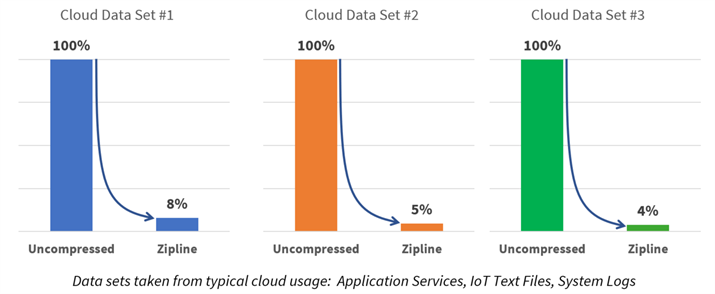
Microsoft is currently using this system in its own Azure cloud, but it is now also partnering with others in the Open Compute Project. Among these partners are Intel, AMD, Ampere, Arm, Marvell, SiFive, Broadcom, Fungible, Mellanox, NGD Systems, Pure Storage, Synopsys and Cadence.
“Over time, we anticipate Project Zipline compression technology will make its way into several market segments and usage models such as network data processing, smart SSDs, archival systems, cloud appliances, general purpose microprocessor, IoT, and edge devices,” writes Vaid.
Powered by WPeMatico
Daily Crunch: Telegram soars after Facebook outage
The Daily Crunch is TechCrunch’s roundup of our biggest and most important stories. If you’d like to get this delivered to your inbox every day at around 9am Pacific, you can subscribe here.
1. Telegram gets 3M new signups during Facebook apps’ outage
In a message sent to his Telegram channel, founder Pavel Durov wrote, “I see 3 million new users signed up for Telegram within the last 24 hours.” Durov doesn’t offer an explicit explanation for Telegram’s sudden spike in signups, but he does take a thinly veiled swipe at social networking giant Facebook.
It’s probably not a coincidence that Facebook and its related family of apps went down for most of Wednesday.
2. Google removed 2.3B bad ads, banned ads on 1.5M apps + 28M pages, plans new Policy Manager this year
Using both manual reviews and machine learning, Google said that in 2018 it removed 2.3 billion “bad ads” that violated its policies — which at their most general forbid ads that mislead or exploit vulnerable people.
3. Uber reportedly raising $1B in deal that values self-driving car unit at up to $10B
Uber is in negotiations with investors, including the SoftBank Vision Fund, to secure an investment as large as $1 billion for its autonomous vehicles unit. The deal would value the business at between $5 billion and $10 billion, according to a report from The Wall Street Journal.

4. Opportunity’s last Mars panorama is a showstopper
The Opportunity Mars Rover may be officially offline for good, but its legacy of science and imagery is ongoing — and NASA just shared the last (nearly) complete panorama the robot sent back before it was blanketed in dust.
5. AI photo startup Polarr raises an $11.5 million Series A
At the moment, Polarr is probably best known for its photography app for iOS and Android, which utilizes machine learning and AI to improve image editing. The company says it has around four million monthly active users.
6. WeWork Labs is launching a food tech accelerator
WeWork is committing $1 million to back the first batch of companies.
7. Facebook won’t store data in countries with human rights violations — except Singapore
When Mark Zuckerberg said in a lengthy blog post that Facebook would not build data centers in countries with poor human rights, he chose to ignore Singapore — known for a lack of privacy and freedom of expression.
Powered by WPeMatico
London proptech startup Nested has laid off 20% of its workforce citing ‘Brexit uncertainty’
Nested, the London-based “data-driven” estate agency that provides a cash advance to help you buy a new home before you’ve sold your old one, has laid off 20 percent of its workforce, TechCrunch has learned.
According to sources, the more than 15 staff being let go were informed earlier today. The majority of departures are within Nested’s operations team, including sales, although I understand they also include a number of engineers and other product people.
Contacted by TechCrunch, Nested co-founder Matt Robinson confirmed the departures, citing the uncertainty of Brexit, and the impact this is having on liquidity in the housing market. It is understood that the layoffs are designed to place Nested in a better financial position and enable it to continue weathering the Brexit storm, and ultimately position the company to reach profitability in the future.
Robinson provided the following statement:
We have come off a record year and quarter but with continued uncertainty around Brexit market volumes have fallen significantly. We will continue to grow share, however, given the external environment we must remain cautious as we build the business for the coming years.
Launched in late 2016, Nested competes with high-end estate agents by providing all of the services needed to sell your house, but with a key difference. In addition to handling valuation, marketing and sales, the startup will loan you between 90 and 95 percent of the market value of your property as a cash advance so you can purchase a new home prior to your old one selling.
Before Brexit and the uncertainty it has caused with regards to U.K. house prices, that figure was “up to 97 percent” of the market value of the property.
More broadly, the idea behind Nested is to eliminate much of the stress and uncertainty of selling and buying a home, including what your final budget will be, and also ensure that you’re never caught up in the dreaded property “chain” and miss out on your desired home. By becoming a cash buyer, it also puts you in a stronger position to negotiate your onward purchase.
Related to this, it is unknown to what extent the downward pressure on house prices in the U.K. has affected Nested’s market fit, or its ability to use data to accurately value the properties it lends cash against. However, the core value-add of not being stuck in a chain would seem to be just as useful in a downturn as it is in an overheated market.
Meanwhile, the downsizing of Nested comes just four months after the startup raised a further £120 million in funding, a combination of £20 million equity financing and £100 million in debt. The equity part of the round was led by Northzone and Balderton Capital, while the source of the debt financing, to be used primarily for the cash advances Nested provides to sellers, was not disclosed.
Previous backers in Nested include Rocket Internet’s Global Founders Capital, and London-based Passion Capital. The current listed directors are CEO Robinson, Rocket Internet’s Oliver Samwer, COO James Turford and Northzone’s Jeppe Heinrich Zink.
Separately — and unrelated to today’s layoffs — TechCrunch has learned that Phil Cowans, who co-founded Nested alongside CEO Robinson and COO Turford, stepped down as CTO of Nested in the last few weeks, although he remains at the company in a different role and as co-founder. He also resigned as a director of Nested on the 25th of February, according to a regulatory filing with the U.K.’s Companies House.
Powered by WPeMatico
ProdPerfect gets $2.6 million to automate QA testing for web apps
ProdPerfect, a Boston-based startup focused on automating QA testing for web apps, has announced the close of a $2.6 million Seed round co-led by Eniac Ventures and Fika Ventures, with participation from Entrepreneurs Roundtable Accelerator.
ProdPerfect started when co-founder and CEO Dan Widing was VP of engineering at WeSpire, where he saw firsthand the pain points associated with web application QA testing. Whereas there were all kinds of product analytics tools for product engineers, the same data wasn’t there for the engineers building QA tests that are meant to replicate user behavior.
He imagined a platform that would use live data around real user behavior to formulate these QA tests. That’s how ProdPerfect was born. The platform sees user behavior, builds and delivers test scripts to the engineering team.
The service continues to build on what it knows about a product, and can then simulate new tests when new features are added based on aggregated flows of common user behavior. This data doesn’t track any information about the user, but rather anonymizes them and watches how they move through the web app. The hope is that ProdPerfect gives engineers the opportunity to keep building the product instead of spreading their resources across building a QA testing suite.
The new funding will go toward expanding the sales team and further building out the product. For now, ProdPerfect simply offers functional testing, which uses a single virtual user to test whether a product breaks or not. But president and co-founder Erik Fogg sees an opportunity to build more integrated testing, including performance, security and localization testing.
Fogg says the company is growing 40 percent month over month in booked revenue.
The company says it can deploy within two weeks of installing a data tracker, and provide more than 70 percent coverage of all user interactions with 95 percent+ test stability.
“The greatest challenge is going to be finding people who share our company’s core values and are of high enough talent, ambition and autonomy in part because our hiring road map is so steep,” said Fogg. “Growing pains catch up with businesses as a team expands quickly and we have to make sure that we’re picky and that we reinforce the values we have.”
Powered by WPeMatico
DoorDash claims drivers made an average of at least $17.50/hour on deliveries in 2018
On-demand food delivery startup DoorDash has been under fire as of late for its practices around paying drivers. In an email to drivers today, obtained by TechCrunch, DoorDash said drivers received an average of $17.50 or more per hour on deliveries in 2018. That figure, of course, does not take into account cost of mileage, payroll taxes for 1099 independent contractors and other expenses.
Sage Wilson, an organizer at nonprofit labor group Working Washington, explained to TechCrunch how that $17.50 per hour figure works out to less than $6 per hour — not including tips, cost of expenses and taxes. That figure, he said, is “based on our review of actual weekly pay data from DoorDash drivers” and an estimate that about 30 percent of the total income comes from tips.
DoorDash currently offsets the amount it pays drivers with customer tips. DoorDash describes its payment structure as follows: $1 plus customer tip plus pay boost, which varies based on the complexity of order, distance to restaurants and other factors. It’s only when a customer doesn’t tip at all, which DoorDash told Fast Company happens about 15 percent of the time, that DoorDash is on the hook to pay the entire guaranteed amount.
In the email sent to drivers today, with “Listening to the Dasher community” in the subject line, DoorDash CEO Tony Xu notes the level of recent discussion pertaining to DoorDash’s pay model. He goes on to defend the company’s practices, saying “we continue to hear from many of you that the model works: you know how much you’ll receive in advance, you receive the guaranteed minimum even if the customer doesn’t tip…”
He does add, however, “But we’ve also heard from some who expressed confusion about how pay is calculated and what happens with tips.”
In the coming weeks, DoorDash said it will launch surveys and organize roundtables for drivers to share their thoughts and concerns. In the email, DoorDash provides a link for drivers to sign up to be included. From there, Xu said DoorDash will look over the feedback, report what it has learned and “what changes we plan to make in response.”
This current model was the result of “months of testing” and surveys of thousands of Dashers. I’ve reached out to DoorDash and will update this story if I hear back.
Powered by WPeMatico
Meet the 19 startups in AngelPad’s 12th batch
AngelPad just wrapped the 12th run of its three months long New York City startup accelerator. For the second time, the program didn’t culminate in a demo day; rather, the 19 participating startups were given pre-arranged one-on-one meetings with venture capital investors late last week.
AngelPad co-founders Thomas Korte and Carine Magescas did away with the demo day tradition last year after nearly a decade operating AngelPad, which is responsible for mentoring startups including Postmates, Twitter-acquired Mopub, Pipedrive, Periscope Data, Zum and DroneDeploy.
“Demo days are great ways for accelerators to expose a large number of companies to a lot of investors, but we don’t think it is the most productive way,” Korte told TechCrunch last year. Competing accelerator Y Combinator has purportedly considered their eliminating demo day as well, though sources close to YC deny this. The firm cut its investor day, a similar opportunity for investors to schedule meetings with individual startups, “after analyzing its effectiveness” last year.
Feedback to AngelPad’s choice to forego demo day has been positive, Korte tells TechCrunch, with startup CEOs breathing a sigh of relief they aren’t forced to pitch to a large crowd with no promise of investment.
AngelPad invests $120,000 in each of its companies. Here’s a closer look at its latest batch:
LotSpot is a parking management tool for universities, parks and malls. The company installs cameras at the entrances and exits of customer parking lots and autonomously tracks lot occupancy as cars enter and exit. The LotSpot founders are Stanford University Innovation Fellows with backgrounds in engineering and sales.
Twic is a discretionary benefits management platform that helps businesses offer wellness benefits at a lower cost. The tool assists human resources professionals in selecting vendors, monitoring benefits usage and managing reimbursements with a digital wallet. Twic customers include Twitch and Oscar. The company’s current ARR is $265,000.
Zeal is an enterprise contract automation platform that helps sales teams manage custom routine agreements, like NDAs, independently and efficiently. The startup is currently working on test implementations with large companies. The founders are attorneys and management consultants who previously led sales and legal strategy at AXIOM.
ChargingLedger works with energy grid operators to optimize electric grid usage with smart charging technology for electric vehicles. The company’s paid pilot program is launching this month.
Piio, focused on SEO, helps companies boost their web presence with technology that optimizes website speed and performance based on user behavior, location, device, platform and connection speed. Currently, Piio is working with JomaShop and e-commerce retailers. Its ARR is $90,000.
Duality.ai is a QA platform for autonomous vehicles. It leverages human testers and simulation environments to accelerate time-to-market for AV sidewalk, cars and trucks. Its founders include engineers and designers from Caterpillar, Pixar and Apple. Its two first beta customers generated an ARR of $100,000.

COMUNITYmade partners with local manufacturers to sell their own brand of premium sneakers made in Los Angeles. The company has attracted brands, including Adidas, for collaborations. The founders are alums of Asics and Toms.
Spacey is a millennial-focused art-buying platform. The company sells limited-edition collections of fine-art prints at affordable prices and offers offline membership experiences, as well as a program for brand ambassadors with large social followings.
LegalPassage saves lawyers time with business process automation software for law firms. The company focuses on litigation, specifically class action and personal injury. The founder is a litigation attorney, former adjunct professor of law at UC Hastings and a past chair of the Family Law Section of the Bar Association of San Francisco.
Revetize helps local businesses boost revenue by managing reputation, encouraging referrals and increasing repeat business. The startup, headquartered in Utah, has an ARR of $220,000.
House of gigs helps people find short-term work near them, offering “employee-like” services and benefits to those freelancers and gig workers. The startup has 90,000 members. The San Francisco and Berlin-based founders previously worked together at a VC-backed HR startup.
MetaRouter provides fast, flexible and secure data routing. The cloud-based on-prem platform has reached an ARR of $250,000, with “two Fortune 500 retailers.”

RamenHero offers a meal kit service for authentic gourmet ramen
RamenHero offers a meal kit for authentic gourmet ramen. The startup launched in 2018 and has roughly 1,700 customers and $125,000 in revenue. The startup’s founder, a serial entrepreneur, graduated from a culinary ramen school in Japan.
ByteRyde is insurance for autonomous vehicles, specifically Tesla Model 3s, taking into account the safety feature of self-driving cars.
Foresite.ai provides commercial real estate investors a real-time platform for data analysis and visualization of location-based trends.
PieSlice is a blockchain-based equity issuance and management platform that helps create fully compliant digital tokens that represent equity in a company. The founder is a former trader and stockbroker turned professional poker player.
Aitivity is a security hardware company that is developing a scalable blockchain algorithm for enterprises, specifically for IoT usage.
SmartAlto, a SaaS platform with $190,000 ARR, nurtures real estate leads. The company pairs agents with digital assistants to help the agents show more homes.
FunnelFox works with sales teams to help them spend less time on customer research, pipeline management and reporting. The AI-enabled platform has reached an ARR of $75,000 with customers including Botify and Paddle.
Powered by WPeMatico

